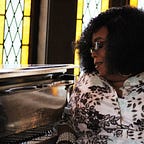Just Singing A Song Won’t Change the World (An Open Letter to Neil Young, Revisited)
It’s been weighing heavily on my soul.
It’s been over 10 years since I heard this song and is refrain still rings in my head. “Just singing a song won’t change the world.”
I am a musician in my heart and in my blood, but I don’t make enough money to build new communities or rid the world of COVID (#maskupcoviddown), and I’m too far off the radar to be asked to sing for America or sing to end racism or even sing for our Black Lives who Matter. Furthermore, regardless of my intention as an artist to add value to people’s lives through music, and maybe even challenge them from time to time to awaken from the urgent complacency that seems to arise from being overworked (or underworked) underpaid, mis-employed, displaced, squeezed, de-valued, and otherwise under appreciated, I often find myself feeling like a tree in the forest on the fringes of the music industry’s great power mandala.
I know the collective “we” has work to do, and it must be done despite the condition in which we find ourselves. It seems like we used to have griots, teachers, troubadours, journey-men/women who used to remind us of this, keep us close to the source so we could ride out the storms with dignity, integrity, and sometimes, dare I say it, ingenuity? But in these times when all this sounds like too much to ask, the griots and the poets seem hard to come by, and us grindstone musicians are finding it harder and harder to keep a roof over our heads.
I think I’m one of those — one who chooses art because it feels like a responsibility, but I desperately want to do it in a responsible and meaningful way.
I know we’re all on lock-down right now, but I believe the power of music is best experienced in a room where the music is happening, where the people-ness of it all connects the dots between the ether, the real, and the ethereal. The extra-sensory information, the vibrating intercourse, the quantum coherence of it all seems to take place most directly in the context of a shared experience of live music.
When the lock-down ends, and the wheels of industry start chugging again, we musicians still have a lot to consider around how to get our music to the people responsibly. For starters, how do we do what we do without accruing s sasquatch-sized carbon footprint. For starters, How do we get from city to city without destroying the environment and exhausting natural resources, especially on an decidedly limited budget?
Moreover, I live in the great city of New Orleans where most venues are struggling to get by themselves and have chosen to compensate the musicians only by offering a small percentage of bar sales on any given night. That means my value to my “client” (the venue) and the financial viability of my endeavor ends up directly proportional to how much alcohol the audience is able to imbibe, while my band is busy trying to heal the hole inside of them that took them to the bar in the first place. It just doesn’t seem to add up.
Obviously I don’t know you Neil, but I’m sharing this because you seem to me to be so true. Your music, your heart, your person-ness feeds me in ways true things do. So please Neil, be my Rilke. Isn’t the first principle of healing “do no harm?” If I really want to change the world, is it time to put my songs on the shelf and find some other way to serve?
